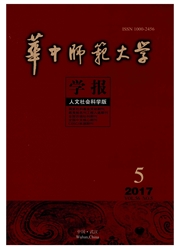

 中文摘要:
中文摘要:
为了进一步认识非伦理行为"近墨者黑"效应的发生机制,分别检验了该效应形成的中介过程与个体特质(道德认同和内部控制点)的调节作用。来自308名企业员工的问卷调查表明:当他人实施非伦理行为时,焦点个体会产生较强的道德推脱,进而导致其实施类似的行为。个体的道德认同和内部控制点会负向调节他人非伦理行为与焦点个体非伦理行为的关系。具体而言,当焦点个体的道德认同较高,或内部控制点较强时,他人非伦理行为对其实施非伦理行为的影响会减弱。
 英文摘要:
英文摘要:
The present research aims to further understand the "monkey see,monkey do"of unethical behaviors through examining the mediating process and the moderating roles of moral identity and internal locus of control.Questionnaire data were collected from 308 employees in enterprises.The results indicate that,when observing others' unethical behaviors,the focal individual will have high moral disengagement which leads to similar behaviors.Moral identity and internal locus of control negatively moderate the relationship between others' unethical behaviors and focal individual unethical behaviors.Specifically,the relationship will be weaker when the focal individual has high moral identity or internal locus of control.Finally,theoretical contributions,practical implications,and limitations of the findings are discussed.
 同期刊论文项目
同期刊论文项目
 同项目期刊论文
同项目期刊论文
 期刊信息
期刊信息
